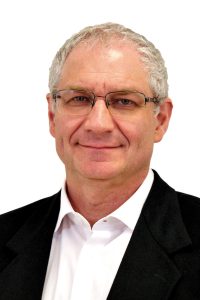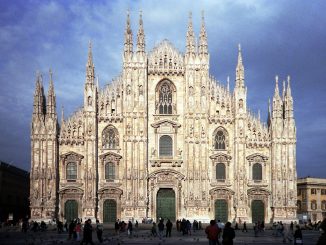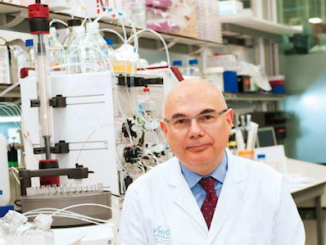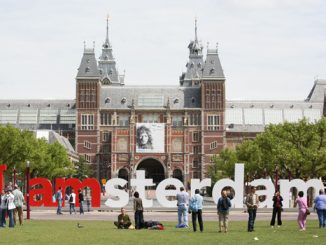
Fortunato Ciardiello took on the presidency of the European Society for Medical Oncology at a time when the profession is being required to deliver treatments of unprecedented complexity and cost. Cancer World Editor, Alberto Costa, asked him how he plans to address the challenges this poses for his members and the cancer community as a whole.
Alberto Costa: What is your vision for ESMO over the coming five years?
Fortunato Ciardiello: Equipping our members to fight cancer more effectively is ESMO’s principal goal. Our ‘2020 Vision’ is to promote integrated cancer care, provide specialised education and advocate for sustainable cancer care. Integrated cancer care involves creating bridges between cancer research, diagnosis and treatment in a concerted effort to improve outcomes for patients. Specialised education is needed now more than ever, as medical oncologists must have in-depth, disease-specific knowledge which enables them to collaborate effectively with other specialists within integrated, multiprofessional teams.
As part of our vision for sustainable cancer care, we will continue to advocate for access to optimal cancer care for all patients worldwide, as cancer is a global issue that reaches beyond wealthy western countries towards developing countries. This is becoming increasingly important as the costs of diagnosing and treating cancer grow and inequalities in the options available become evident between, and even within, countries.
 AC: ESMO is increasingly active beyond the borders of Europe. Where are ESMO’s priority areas of international work?
AC: ESMO is increasingly active beyond the borders of Europe. Where are ESMO’s priority areas of international work?
FC: ESMO has become a global society, maintaining its European roots. As a testament to our international appeal, we now have more than 13,000 members from more than 130 countries, and 24% of members are from the Asian region.
ESMO is now able to nurture a community of professionals working together to find solutions to complex questions and to drive the pace of change even further in the best interests of patients across the world. ESMO has very strong ties and interaction with national societies and oncology professionals working in Asia.
Last year we held the first ESMO Asia Congress, attended by almost 3,000 participants, who had the chance to share expertise and knowledge on a regional and international scale. The congress was organised in collaboration with our partners in Asia to ensure regional issues were addressed, on top of providing up-to-the-minute information on all types of cancer, with a focus on those most prevalent in the region.
AC: Surgeons are under increasing pressure to stop ‘doing everything’, and to specialise by organ site. Should medical oncologists do the same, or does ESMO still support the concept of a ‘totipotent’ medical oncologist?
FC: Integrated, disease-specific teams are becoming the gold standard for delivering high-quality care in comprehensive cancer centres. In order to collaborate effectively within multiprofessional teams, keeping pace with the fast evolution of medical oncology, professionals in this field – like in many others – must become specialists, not least because complex molecular tumour analysis plays a fundamental role in choosing the most appropriate treatments for patients. The ESMO 2020 Vision supports this evolution.
Our young oncologist development framework promotes fully integrated education based on early-career disease-oriented specialisation, as well as understanding of the role of immunotherapy in cancer treatment. In addition, we support specialisation with the full series of ESMO Preceptorship courses and with disease-specific meetings such as the European Lung Cancer Conference (ELCC), the ESMO World Congress on Gastrointestinal Cancer, and the ESMO Immuno-oncology Symposium.
We also have to be realistic, though: in real life there are many physicians who must deal with different types of cancer. This is particularly relevant for smaller hospitals in less affluent countries, or where there is no public health system. ESMO provides ad hoc educational opportunities for those oncologists to ensure they remain updated and can offer the best possible care to their patients.
AC: How do you see your interaction with ECCO after what many are calling a ‘divorce’ from the biannual joint conference?
FC: To keep their clinical practice up-to-date in a fast-moving field, medical oncologists deserve a dedicated annual congress where the latest advances are presented, discussed and put into clinical perspective by leading experts.
ESMO is, and remains, a founding member of ECCO, the umbrella organisation for oncology societies in Europe. We are committed to supporting ECCO to develop its role and mandate in oncopolicy, to make sure cancer is high on the political agenda in Europe.
Our own achievements in oncology policy demonstrate our commitment: our support for the new Data Protection and the Clinical Trials regulations; ESMO’s European and global opioid policy initiatives on barriers to access to opioids for cancer pain; ESMO’s European and international surveys on availability and accessibility of anti-cancer medicines; and the ESMO Magnitude of Clinical Benefit Scale, a tool to help clinicians choose the most effective anti-cancer medicines for patients and to aid regulators to identify those drugs with significant clinical benefit so they can be adopted rapidly across Europe.
Fortunato Ciardiello is Full Professor of Medical Oncology, Head of the Laboratory of Experimental Therapeutics, Head of the Division of Medical Oncology, Director of the Department of Clinical and Experimental Medicine and Surgery, and Member of the Academic Senate, at the Seconda Università di Napoli in Naples He has published more than 380 papers in international scientific publications.





